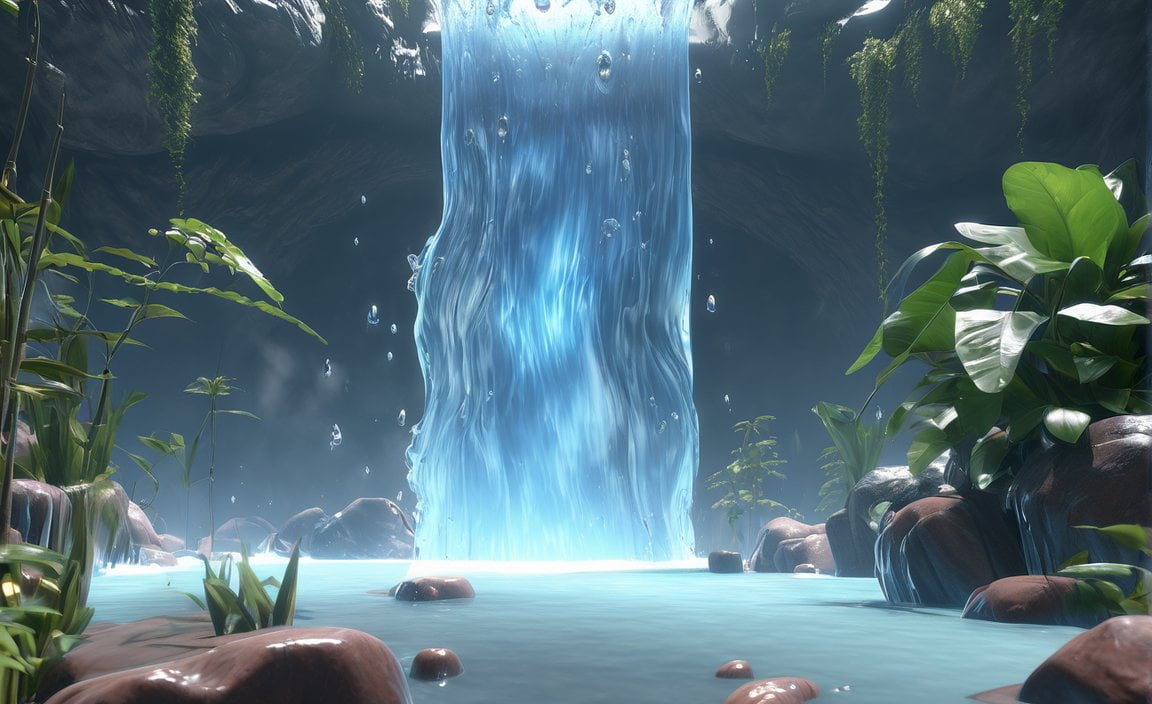In this article, we delve into the world of water and explore the advantages and disadvantages of hard and soft water. Understanding the differences between these two types of water, learning about their impact on human health, household appliances, and the environment, is crucial for making informed decisions about water usage and treatment options. So, let’s explore the pros and cons of hard and soft water and gain a comprehensive understanding of this topic.
Key Takeaways:
- Hard water contains higher levels of minerals like calcium and magnesium, making it classified as hard, while soft water has lower mineral content.
- Hard water can contribute to dry skin and hair, but it is not associated with serious health risks and may have cardiovascular benefits.
- Issues caused by hard water include skin and scalp irritation, staining and build-up, damage to plumbing systems, higher water heating bills, and frequent replacement of clothing and appliances.
- Soft water is more energy-efficient as it doesn’t cause clogging in heaters.
- Homes with soft water are significantly more energy-efficient than those with hard water due to the lack of scaling and improved heater performance.
Advantages and Disadvantages of Hard and Soft Water

Water is a necessity of life, and the quality of the water we use can have a significant impact on our daily lives. When it comes to water, there are two main types: hard water and soft water. Understanding the advantages and disadvantages of each can help you make informed decisions about your water usage and treatment options.
What is Hard Water? And Soft Water?
Water can be classified as either hard or soft based on its mineral content, primarily calcium and magnesium. The hardness of water is determined by the concentration of these minerals, with higher levels making the water hard. Unlike other physical properties of water, such as color or temperature, hardness cannot be determined visually.
Advantages of Hard Water
Drinking hard water is not associated with serious health risks. In fact, the high concentration of magnesium and calcium in hard water is said to have some cardiovascular benefits. However, it’s important to note that excessive consumption of calcium and magnesium can contribute to dry skin and hair.
Disadvantages of Hard Water
While hard water may have some health benefits, it can also cause a variety of issues. One of the most common problems is skin and scalp irritation, as the minerals in hard water can strip away natural oils, leaving the skin and hair dry. Additionally, hard water can lead to staining and build-up on fixtures, dishware, and appliances. The minerals in hard water can create deposits that clog pipes and reduce water flow, causing damage to plumbing systems. Furthermore, the build-up of mineral deposits also affects the efficiency of water heaters, leading to higher energy bills. Not to forget, the minerals in hard water can cause clothes and appliances to deteriorate more quickly, resulting in frequent replacements.
Advantages of Soft Water
On the other hand, soft water offers several advantages. One notable benefit is its energy efficiency. Soft water doesn’t cause clogging in water heaters due to its lack of scaling. This lack of reaction with heat allows water heaters to perform more efficiently, resulting in lower energy consumption and cost savings.
Disadvantages of Soft Water
While soft water is energy-efficient and offers benefits for water heaters, it does have some downsides. Soft water lacks the minerals found in hard water, which can contribute to our overall mineral intake. Furthermore, the absence of these minerals may affect the taste of the water, leaving it with a slightly “flat” or “soapy” taste. However, this taste difference is subjective and may vary from person to person.
In summary, both hard water and soft water have their advantages and disadvantages. Hard water provides potential cardiovascular benefits but can cause issues such as dry skin and hair, staining and build-up, plumbing damage, higher energy bills, and frequent replacements of clothing and appliances. On the other hand, soft water is more energy efficient and prevents scaling in water heaters, but lacks minerals and may have a slightly different taste.
By understanding the pros and cons of hard and soft water, you can make informed decisions about water treatment options to ensure the best quality for your household needs and lifestyle.
Sources:
1. Hard Water and Soft Water: Differences, Advantages, and Health Risks – Healthline
2. Pros and Cons of Hard and Soft Water – PerfectWater™
In our article about the advantages and disadvantages of hard water, we explore the various benefits and drawbacks of this type of water. Click here to learn more and discover how it can affect your daily life.
When it comes to recycling wastewater, there are both pros and cons to consider. Dive into the topic of the advantages and disadvantages of recycling wastewater by clicking here and discover the impact it can have on our environment.
The mighty river holds great significance, but did you know it also has its own set of advantages and disadvantages? Explore the topic of the advantages and disadvantages of river by clicking here and gain insights into the wonders and challenges rivers bring.
What is Hard Water? What is Soft Water?
To understand the pros and cons of hard and soft water, let’s first clarify what these terms mean. Hard water and soft water refer to the mineral content present in your tap water.
Hard water contains high levels of minerals, specifically calcium and magnesium. These minerals are picked up as water passes through rocks and soil, dissolving and carrying them along. The amount of calcium and magnesium in the water determines its hardness. Higher concentrations of these minerals make water harder.
On the other hand, soft water has a low mineral content, predominantly consisting of sodium ions.
But why does the hardness or softness of water matter? Let’s explore the advantages and disadvantages of each.
Advantages and Disadvantages of Hard Water
Hard water does offer a few benefits. The high mineral content, particularly calcium and magnesium, can provide additional health benefits. These minerals are essential for the body and contribute to our daily intake of calcium and magnesium.
However, the drawbacks of hard water should not be overlooked. The minerals in hard water can lead to the buildup of limescale, causing damage to plumbing systems and appliances. This buildup can reduce the lifespan and efficiency of your household appliances, resulting in higher maintenance and replacement costs. Additionally, hard water can stain surfaces and require more cleaning efforts.
Advantages and Disadvantages of Soft Water

Soft water, with its low mineral content, has its own set of advantages. It tends to be more gentle on your skin and hair, reducing the chances of dryness or irritation. Soft water is also better for your appliances, as it doesn’t lead to limescale buildup. This results in improved energy efficiency—soft water requires less energy to heat, making it more cost-effective for your household.
However, there are a few disadvantages associated with soft water. While it may be gentler on your skin and hair, some argue that soft water may not be as healthy to drink due to the higher sodium levels. Additionally, if you rely on soft water for your daily mineral intake, you may need to find alternative sources of calcium and magnesium.
Key Takeaways:
- Hard water contains significant levels of calcium and magnesium, while soft water has a low mineral content.
- Hard water offers health benefits due to its mineral content, but it can cause limescale and damage appliances.
- Soft water is gentler on your skin and hair, better for appliances, and more energy-efficient.
- However, soft water may have higher sodium levels and may not provide the same mineral benefits as hard water.
- Water hardness is measured on a scale of milligrams per liter (mg/L) of calcium carbonate equivalent, ranging from very soft to very hard.
- Testing water hardness is necessary to determine its hardness level accurately.
Sources:
– Hard vs. Soft Water (And How to Tell the Difference)
– Hard Water and Soft Water: Differences, Advantages, and Health Effects
Advantages of Soft and Hard Water
When it comes to the water we use in our daily lives, not all of it is created equal. Depending on where you live, the water that comes out of your tap can be classified as either hard or soft. But what exactly does that mean, and what are the advantages of each?
Understanding Water Hardness
Water hardness refers to the mineral content present in the water, primarily calcium and magnesium. The concentration of these minerals determines whether the water is classified as hard or soft. Hard water contains higher levels of calcium and magnesium, while soft water has a lower mineral content.
Health Benefits of Hard Water
Despite its reputation for causing problems, hard water actually has some advantages. The high mineral content in hard water provides additional health benefits, particularly in the form of extra calcium and magnesium. These minerals are vital for maintaining healthy bones and teeth. In fact, some studies suggest that drinking hard water may even have cardiovascular benefits.
Benefits of Soft Water for Skin and Appliances
On the other hand, soft water has its own advantages. The lower mineral content makes it gentler on your skin and hair. If you’ve ever experienced dryness or irritation after showering, switching to soft water could make a noticeable difference. Soft water is also better for your household appliances. The lack of minerals means that there is less limescale build-up, resulting in lower maintenance and longer-lasting appliances.
Energy Efficiency and Water Hardness
Interestingly, water hardness can also impact your energy consumption. Homes with soft water tend to be more energy-efficient than those with hard water. This is because soft water does not cause scaling and clogging in water heaters and other appliances. Without the need to battle with limescale, appliances can operate more efficiently, reducing energy consumption and potentially saving you money on your utility bills.
Considerations to Keep in Mind
While hard water has its advantages, it can also come with some drawbacks. The high mineral content in hard water can lead to limescale buildup, which can damage pipes, fixtures, and appliances over time. This can result in costly repairs and replacements. Additionally, soft water may not be as healthy to drink due to its higher sodium levels compared to hard water. If you are considering a water treatment option, it is important to weigh these pros and cons.
Determining Water Hardness
Determining whether your water is hard or soft is not a task for the naked eye. Signs of hard water, however, can include limescale buildup on faucets and showerheads. To accurately measure water hardness, you can use test kits available in the market or send a sample to a laboratory for analysis.
Remember, understanding the advantages and disadvantages of hard and soft water is crucial in making informed decisions about your water usage and treatment options. So, whether you prioritize the additional minerals in hard water or the benefits of soft water for your skin and appliances, choose the option that best aligns with your needs and priorities.
Key Takeaways:
- Hard water contains higher levels of calcium and magnesium, providing additional health benefits.
- Soft water is gentler on the skin and hair, better for appliances, and more energy-efficient.
- Hard water can cause limescale buildup and damage to plumbing and appliances.
- While soft water may have higher sodium levels, it can provide a milder bathing experience.
- Water hardness can be measured using test kits or by sending a sample to a laboratory.
- Consider your specific needs and priorities when deciding between hard and soft water treatment options.
Sources:
1. Hard vs. Soft Water (And How to Tell the Difference)
2. Hard Water And Soft Water: Meaning, Causes, Types & Differences
FAQ
Q1: What are the advantages and disadvantages of soft water?
A1: Soft water has several advantages, including being gentler on the skin and hair, better for household appliances, and more energy-efficient. However, one disadvantage of soft water is that it may have higher sodium levels, making it potentially less healthy to drink.
Q2: What is the difference between hard water and soft water?
A2: The main difference between hard water and soft water lies in their mineral content. Hard water contains higher levels of minerals like calcium and magnesium, while soft water has a lower mineral content. This difference in mineral concentration leads to contrasting impacts on human health, household appliances, and energy efficiency.
Q3: What is hard water?
A3: Hard water refers to water that has a high mineral content, particularly calcium and magnesium. The hardness of water is determined by the concentration of these minerals, with higher levels making the water hard. Hard water can cause issues such as skin and scalp irritation, staining and build-up, damage to plumbing systems, higher water heating bills, and the need for frequent replacement of clothing and appliances.
Q4: What is soft water?
A4: Soft water is water that has a low mineral content, specifically calcium and magnesium. It is gentler on the skin and hair, better for household appliances, and more energy-efficient. Soft water does not cause scaling in heaters, resulting in improved energy efficiency for homes that use it.
Q5: What are the advantages of soft and hard water?
A5: Soft water has advantages such as being gentler on the skin and hair, better for household appliances, and more energy-efficient. On the other hand, hard water provides health benefits like extra calcium and magnesium. However, it can also cause issues such as limescale buildup and damage to plumbing and appliances.
















